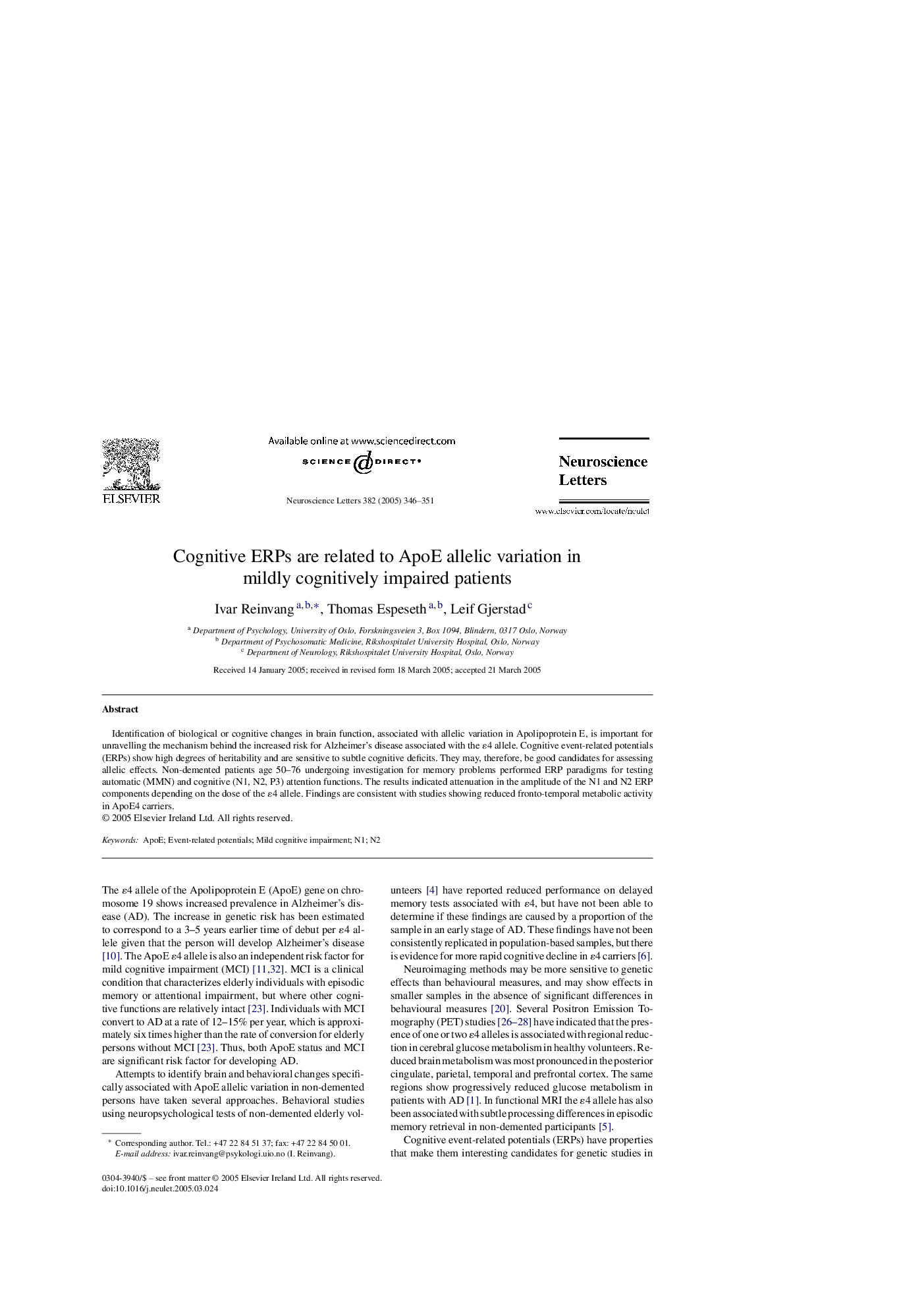| Article ID | Journal | Published Year | Pages | File Type |
|---|---|---|---|---|
| 9429527 | Neuroscience Letters | 2005 | 6 Pages |
Abstract
Identification of biological or cognitive changes in brain function, associated with allelic variation in Apolipoprotein E, is important for unravelling the mechanism behind the increased risk for Alzheimer's disease associated with the É4 allele. Cognitive event-related potentials (ERPs) show high degrees of heritability and are sensitive to subtle cognitive deficits. They may, therefore, be good candidates for assessing allelic effects. Non-demented patients age 50-76 undergoing investigation for memory problems performed ERP paradigms for testing automatic (MMN) and cognitive (N1, N2, P3) attention functions. The results indicated attenuation in the amplitude of the N1 and N2 ERP components depending on the dose of the É4 allele. Findings are consistent with studies showing reduced fronto-temporal metabolic activity in ApoE4 carriers.
Related Topics
Life Sciences
Neuroscience
Neuroscience (General)
Authors
Ivar Reinvang, Thomas Espeseth, Leif Gjerstad,
